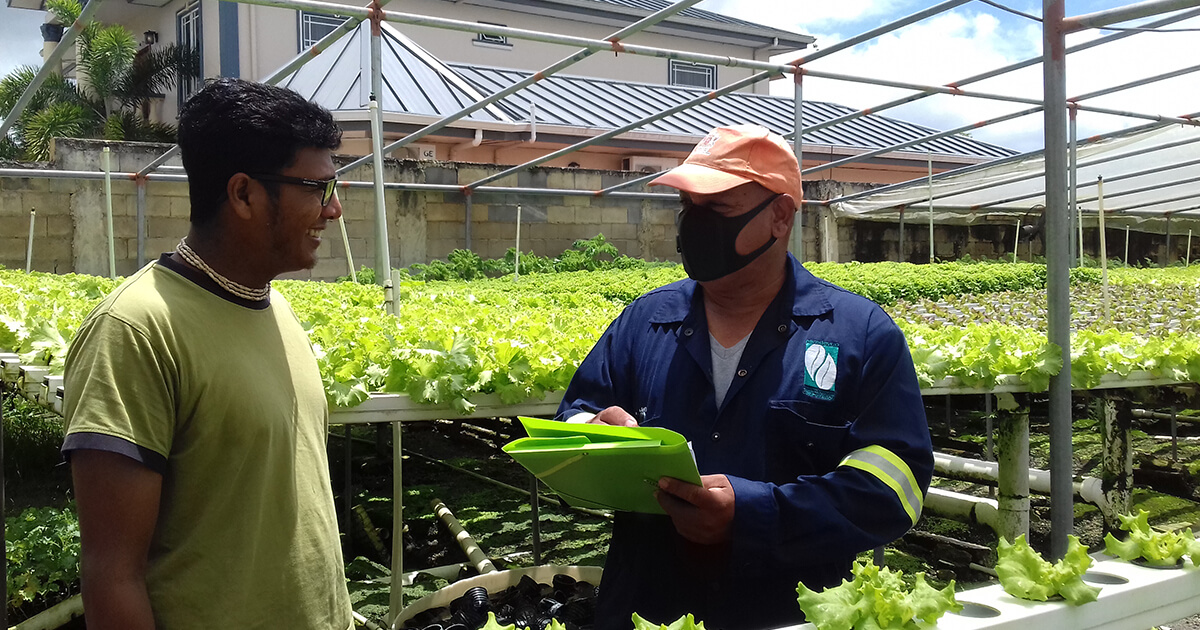Farmer-to-Farmer Program Shares Virtual Good Ag Practices Program with Trinidad and Tobago Extension
T
he United States Agency for International Development (USAID) funded program, Farmer-to-Farmer, provides technical assistance from U.S. volunteers to farmers, farm groups, agribusinesses and other agriculture sector institutions in developing and transitional countries. In 2020, Purdue University’s International Programs in Agriculture (IPIA) and Purdue Extension announced the USAID John Ogonowski and Doug Bereuter Farmer-to-Farmer (F2F) program would be implemented in Trinidad and Tobago over the next three years. Due to the COVID-19 pandemic, the Purdue F2F program transitioned the project into a virtual volunteer assistance strategy to support host organizations. The virtual assignments have provided real-time and pre-recorded trainings for host groups in Trinidad and Tobago.
“The volunteer assignments are being implemented differently than originally envisioned, but USAID has fully supported the successful switch to virtual assignments, says Gerald Shively, Associate Dean and Director of International Programs in the College of Agriculture. “There has been strong participation in the five virtual engagement activities conducted since February and there will be another five assignments beginning in late March and early April.”
The National Agricultural Marketing and Development Corporation (NAMDEVCO), key marketing authority in Trinidad and Tobago, acted as an in-country host for this program while Scott Monroe, Purdue Extension Food Safety Educator, introduced the USDA Good Agricultural Practices (GAP) certification to Extension officers. The GAP certification assists primary producers and farmers with increasing the quality of farm produce as well as with quality control, traceability and uniform standards for fresh produce.

The NAMDEVCO extension department intends to introduce the GAP certification to the country’ primary producers/farmers to promote risk-reducing strategies to enable them to compete successfully in local and international markets. Trinidad and Tobago governments recently instituted a standard for GAP’s to produce crops with as little risk of contamination as possible. GAP’s practices verify that fruits and vegetables are produced, handled and stored safely to minimize any contamination or food safety risks.
“My focus has been to work with Trinidad and Tobago Extension officers to first and foremost provide information on GAPs and equip them to create an awareness of these issues with the produce growers in their country,” says Scott Monroe, Purdue Extension Food Safety Educator and F2F volunteer. “Virtual aspects of the assignment can definitely be challenging. It really forces you to work harder at understanding and appreciating what the needs are for both Extension officers and the people of Trinidad and Tobago.”
The Purdue F2F program’s virtual assignments include a US volunteer, local volunteer and field coordinator. “Having a local volunteer and field coordinator in Trinidad and Tobago has really eased the process because the local volunteer can help to get participants engaged and involved,” says Shoba Marimuthu, NAMDEVCO Quality and Food Safety Field Officer. “It has been difficult moving from in-person to virtual assignments, but the people involved have made the transition highly successful.”
Purdue University International Extension Specialist and Farmer-to-Farmer Trinidad and Tobago Program Director, Amanda Dickson, says, “Since September, we’ve completed nine virtual assignments and plan to complete thirteen more over the next six months. U.S. volunteers, Purdue Extension educators and faculty, and Trinbagonian volunteers have really stepped up to provide virtual technical assistance.”





